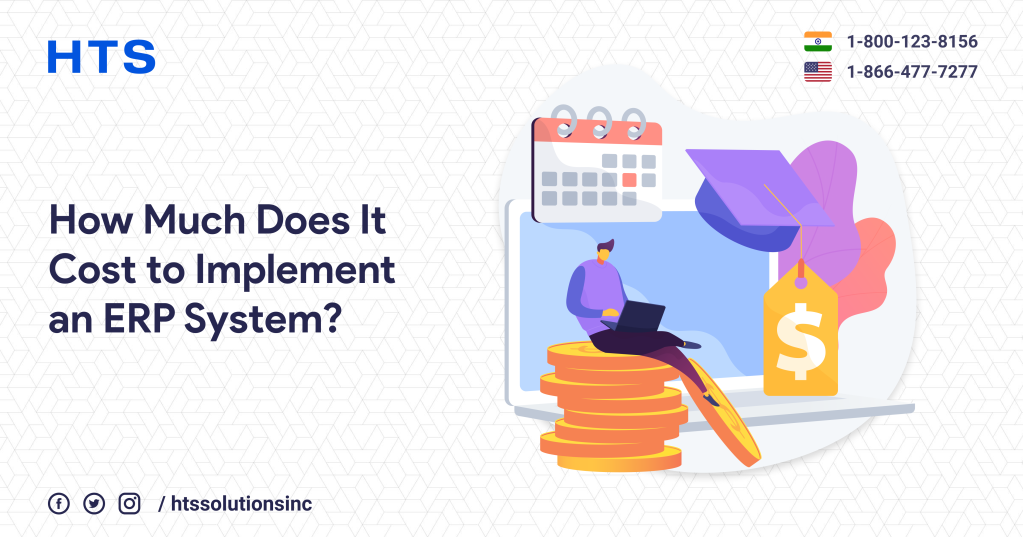
We are living in a digital age and everything is becoming advanced with time. Considering this, individuals or even big/small organizations cannot see their future without shaking hands with technology.
When we talk about businesses, implementing an ERP system has become a must to smoothen up the processes and improve ROI. Here, in this post, we are going to discuss what should be your budget to implement an ERP system in your organization. The cost of enterprise resource planning (ERP) will depend upon various factors including the size & type of your organization, its location, the type of system you want, and much more. We will talk about this in detail, but before we move ahead let us have a brief look at what ERP is.
What is ERP?
Abbreviated for enterprise resource planning, ERP is referred to the systems and software used to streamline industrial processes and simplify the activities to ensure effective monitoring and generate more revenue.
ERP software can automate most of the individual activities in your organization including customer relationship management, financial management, supply chain, and HR. Besides this, implementing an ERP system will also help you bring all these individual activities together and communicate effectively. Thus, you need to have a reliable ERP system to see your business grow.
How Much Does It Cost to Implement an ERP System?
Now, the real question here is how much you need to invest to implement an effective ERP system in your organization? If we talk about the average cost of ERP implementation, then small businesses will be required to pay around $10,000 to $1,50,000 annually whereas, this cost can rise to $7,50,000 for medium-sized organizations and more than $10 million for large businesses. The actual cost will be determined by various other industrial factors other than its size including the level of customization and on-premises deployment or cloud ERP.
Before we wind it up, here are two important ERP system pricing models that’ll help you effectively decide what actually will fit into your budget and needs.
Pricing Models of ERP System
Perpetual Licensing
Perpetual licensing is required for on-premises deployment. This means businesses want to host ERP software on their own servers. Thus, they are required to pay a one-time fee to get a perpetual license. Here’s a catch with this, the fee a company is required to pay will depend upon the number of users of the ERP software and the customizations you’ve asked for. It is seen that a perpetual license generally doesn’t require any maintenance or upgrade cost.
Subscription Plans
This is a better option for companies with a low budget as, with this option, companies can subscribe for monthly or annual plans. One point to be noticed here is that the ERP software will be hosted on a third-party server. This pricing model is also known as Software-as-a-Service (SaaS).
Conclusion
We hope that now you would have got a better idea of the basic cost required for ERP implementation along with the factors that control it. So, if you are low in budget, it is advised to choose the subscription plan because hosting the software on your own server is accompanied by infrastructure and training costs as well. While on the other hand, if budget is not an issue, then you must go for perpetual licensing.
Make your decision wisely and enjoy the benefits provided by the ERP system.


